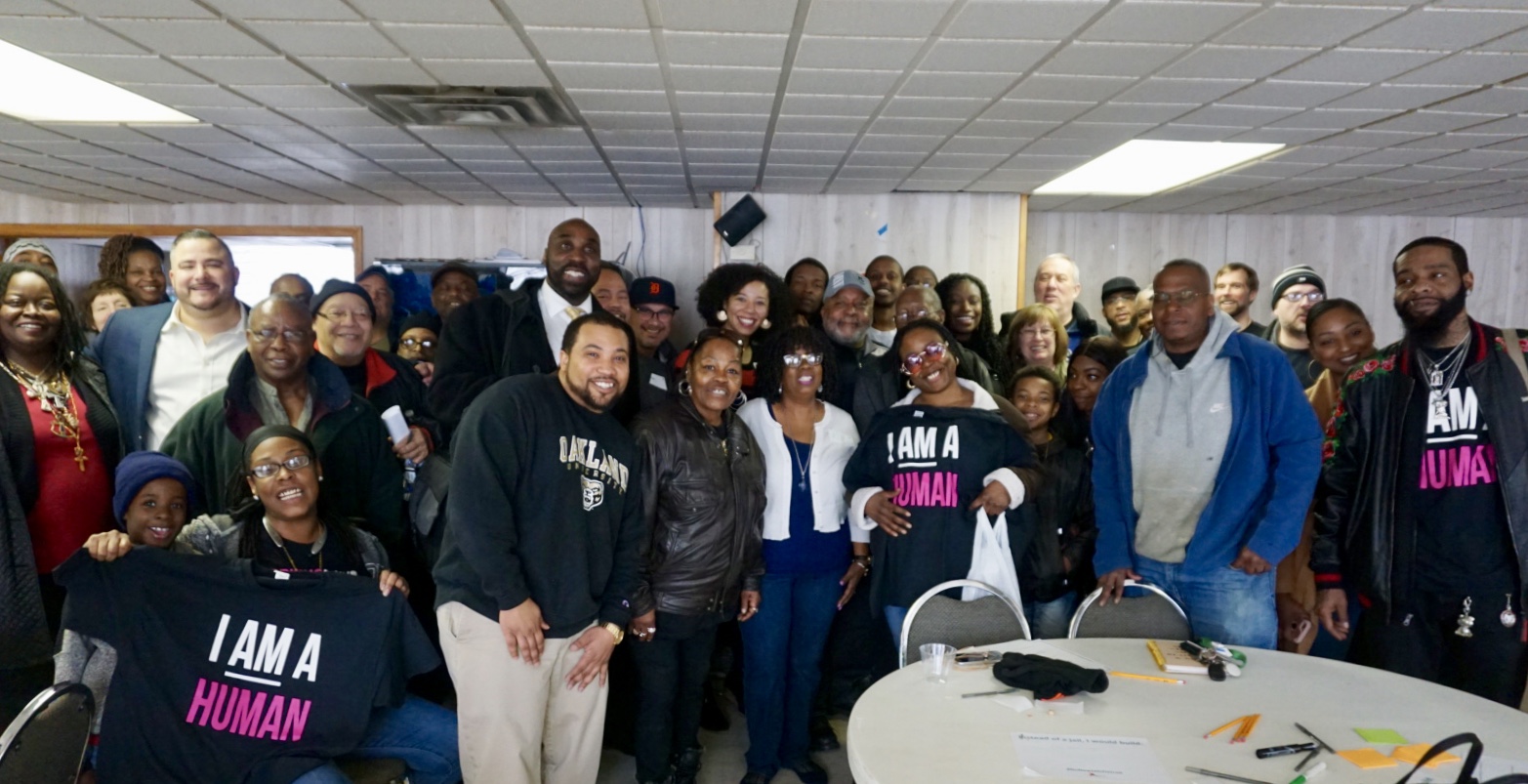Along with Just Leadership USA, NationOutside and Michigan Faith in Action, we’ve signed on to this shared statement calling for community-driven legislation around expungement. While we agree with lawmakers that access to expungement should be expanded, the current proposed legislation still shuts too many people out. Read the full statement below:
FORMERLY INCARCERATED LEADERS URGE LAWMAKERS TO CONSIDER A COMMUNITY-DRIVEN VISION FOR EXPUNGEMENT
LANSING, Mich. — On Tuesday, September 24, 2019, the State House Judiciary will hear testimony on bill package HB 4980-85, regarding the expansion and automation of expungement (also known as “set-asides”) for certain convictions. While the package broadens current expungement law, it falls short of fulfilling on a host of community-driven demands for truly comprehensive and fully automated expungement. The hearing will provide an opportunity for directly impacted advocates to be heard by legislators about what they and their constituents truly need from automatic expungement legislation.
Detroit Justice Center, JustLeadershipUSA, NationOutside and Michigan Faith in Action have issued the following statement in advance of Tuesday’s hearing:
“Formerly incarcerated and convicted people have actively and routinely been denied a voice in the making of criminal justice reform. This is despite the fact that every effective social movement has been led by those most impacted by systems of oppression. Including formerly incarcerated and convicted advocates is a first step not only to rectifying this but to ensuring that the reforms enshrined in new legislation have the desired positive effect for Michigan’s impacted communities. In an attempt to directly challenge the status quo, our coalition convened listening sessions across Michigan to empower people impacted by mass criminalization in order to collectively develop comprehensive policy recommendations on the automation and expansion of conviction set-asides. These recommendations were then shared with key stakeholders and legislators. Given the vital importance of legislation being informed and shaped by directly impacted people, we are disappointed that our voices are not reflected in the bill package. We urge lawmakers to incorporate our recommendations before the legislation’s final consideration so that, when passed, its reforms will have the best impact.
“More than two million adult Michiganders have a conviction record that creates barriers to their being able to access basic life necessities, including housing, employment, healthcare, and education. While current law excludes most Michiganders with conviction histories from access to expungement, of those who are eligible to take advantage of it a scant 6 percent do so. This is a result of the fact that the expungement application process itself is costly, complicated, and traumatic. It should be none of these. While this bill package does introduce automatic expungement, it limits automatic set-asides to non-violent misdemeanors (capped at just four) or low-level felonies (capped at two) that are non-assaultive and punishable by less than ten years, and carves out any and all assaultive crimes. The effect of the barriers that come with having a record is not just exclusion from opportunity, but from people being able to simply live. Automatic expungement that is both thoughtful and comprehensive can combat the human and economic injustice of such barriers.
“The limits as they stand today do not follow or demonstrate any rationale in their capping the number of automatically expungeable offenses and thereby undermine the very intention of Clean Slate to ensure equitable access to expungement for all Michiganders. Furthermore, the 10-year timeframe flies in the face of scientific research that has demonstrated that desistance of most crime happens after five years. To extend that timeline does not benefit communities or promote public safety. It only keeps people from jobs, housing and education, which erodes the wellbeing of families and communities statewide.
“Moreover, by carving out assaultive crimes and limiting the number of expungeable convictions, this bill draws artificial, if not arbitrary, boundaries that will have a disproportionate impact on Black and brown communities in which prosecutorial up-charging and over-sentencing is as commonplace as it is destructive.
“Not only do such carve-outs limit in practice the positive impact of Clean Slate legislation, but it also ignores that Clean Slate has come to be considered a meaningful, albeit limited, step in course-correcting six decades of tough-on-crime policies that have disproportionately targeted working-class and Black and brown communities. We believe the current draft of the bill can be greatly improved and, by doing so, ensure access to a clean slate for communities historically and currently harmed by over-policing and mass criminalization.
“The bill package, in its present form, also will further criminalize poverty in Michigan. It does so by proposing that all restitution must be paid by individuals for them to be eligible for an automated set-aside. While restitution is almost never paid in full because of an inability to pay (federally, 95 percent of people ordered to pay restitution receive a waiver because of an inability to pay), this in fact betrays the purpose and derails the benefit of automating set-asides: To ensure that the onerous process and fees do not inhibit the right of any Michigander to an expungement.
“The bill package falls short of previous versions in several other areas.
“The current version makes the implementation of automated Clean Slate contingent on the ability of the State to raise funds. This presents clear and concerning obstacles because the bill, regardless of its merits, would not be implemented if lawmakers decide not to appropriate the funding necessary for the automation process. Another provision in the current package pertaining to set-asides for marihuana convictions fails to allow for more comprehensive redress for the people and communities targeted by the wrongheaded, failed, ongoing War on Drugs.
“We stand in solidarity with community members and their demands, including automating set-asides for ALL misdemeanor convictions after five years (including traffic offenses) and expunging felonies through a matrix based on seriousness. We believe everyone deserves a WORKINGfuture and we stand ready to work with Michigan legislators and fellow advocates to add substantive changes to the legislative package.”


